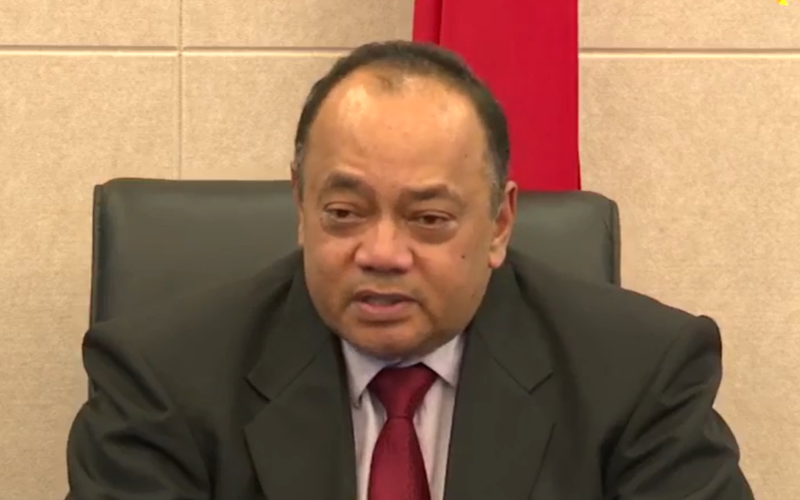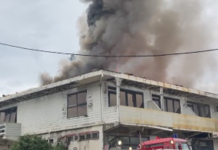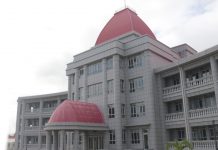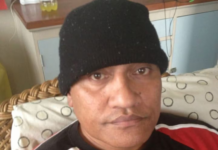COMMENTARY: Pacific island leaders are starting to arrive in Tonga for the 53rd regional summit, aiming to navigate rapidly rising seas, damaging great power rivalries, and violent unrest in New Caledonia.

The US Deputy Secretary Kurt Campbell and UN Secretary-General Antonio Guterres are expected to join the regional meeting.
It is a once-in-a-lifetime meeting, and Tonga has been tirelessly preparing for it.
Prime Minister Hu’akavameiliku emphasised that the meeting was pivotal in the kingdom’s history.
He reportedly said Tonga was “fortunate” to host the meeting this year and “trying to actually make it quite an experience”.
“We are looking forward to actually showing people what our culture is all about, what our food is all about, and what Tonga is all about.”
Since last week, drills for civil servants and event hosts have been ongoing, including practice for motorcades and airport welcomes.
However, the crucial question at this juncture is whether Tonga is adequately prepared to host a successful meeting, particularly at the hospitality level.
We are talking about the people who oversee and manage all aspects of the meeting, including transportation, food, security and serving as the event’s representatives. They interact with leaders and their staffs, ensure smooth operations, and create a memorable experience for all attendees.
One does not need to go far to encounter a challenge that could help us assess our level of preparedness and readiness for this meeting.
Handling of Covid-19 pandemic
The government was heavily criticised for handling the kingdom’s inaugural COVID-19 case and the subsequent arrival of Tongans from overseas following the border’s reopening. This was despite extensive training and drills for staff and healthcare workers to ensure successful handling of the returnees.
The Covid-19 encounters and experiences should collectively provide a valuable learning opportunity as an integral part of the preparation to host the leaders’ forum.
As Kaniva News reported at the time, the government’s handling of the Covid case was heavily criticised as too slow and showed its preparations to handle a pandemic appeared insufficient.
At the time, the then Prime Minister Pōhiva Tu’i’onetoa urged the public to get vaccinated and not panic, but the public had been waiting for a while before the government addressed their concerns.
Tongan veteran journalist Kalafi Moala said, at the time, the government appeared to have failed in meeting the level of preparedness it had promised the public if Covid had arrived in the kingdom.
“There is no sign of preparedness for this despite the number of previous statements assuring the public there was a plan already in place if the virus will arrive here,” Moala said.
Moala said the government needs to give people more certainty.
One of Tonga’s top journalists, Dr Sione Vikilani, said on Facebook, at the time, that information is essential, especially when there are significant national issues.
“The information needed to be accurate and true, and they have to be released promptly to the public so that the people receive the same information at the same time from the government. The spreading of misinformation is growing because of the slowness in releasing factual information (from authorities). What will happen is that the people could believe in whatever information they can get”, Vikilani wrote in Tongan.
Food and accommodation
Complaints were also raised regarding the accommodation and food provided to returnees residing in MIQ facilities.
A male returnee described a hotel room in which the government had arranged for him to stay while being in a 10-day Covid quarantine period as appalling.
It had been reported that the room and toilet at one hotel were dirty, and the food was bad. The sheets were unwashed or unchanged, and part-used bars of soap were left in the hotel bathrooms for clients to use.
The complainant alleged the hotel had provided expired milk for their daily meals. Other repatriates in the hotel were reported to have taken photos of the expired milk and shared them on Facebook.
There were also complaints about the long wait at the airport after the returnees’ arrival, and people found it difficult to breathe because they were wearing masks in hot weather.
While the leaders’ meeting doesn’t pertain to another Covid-19 pandemic, the government should review the Covid-19 handling procedures to prevent a recurrence. This is essential as in both cases, they equally involve dealing with individuals who require special attention and care.
It is said that the success of any business meeting is determined before it begins. If each participant fails to adequately prepare, there is little chance that the meeting will be a success—and even if it is, it will be suboptimal.







